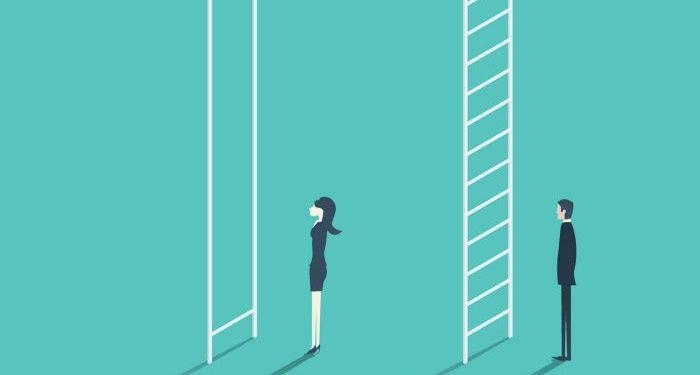Sarah Hawkes & Kent Buse
“Is my lipstick protecting me against COVID-19?” ranks as one of the more intriguing email queries we have received from a member of the public since we began coordinating the world’s largest tracker of sex-disaggregated data on the pandemic. In fact, the question points to an important universal truth regarding public health.
We established the tracker in March 2020 because we thought that Covid-19 was unlikely to be equally distributed in any population. That hunch has proved correct. Our data show, for example, that women are more likely than men to get tested (and vaccinated) for Covid-19, less likely to be hospitalised, much less likely to have a severe infection requiring admission to an ICU, and around 30 per cent less likely to die from the disease.
More generally, the pandemic has shone a much-needed light onto unequal health and well-being, and laid bare the relationship between inequality and disease. It has highlighted unequal risks within societies – with marginalised populations and those who have suffered historical and contemporary injustices reporting higher rates of Covid-19 – and unequal burdens
between societies.
While our own focus is on understanding the role of gender in the pantheon of health inequalities, our tracker shows that low income countries’ male-to-female Covid-19 mortality ratio is more than double that of high income countries. Clearly, economic and other inequalities cannot be ignored, and these often interact with and reinforce gender inequalities.
The concern with social inequalities and health is not new. In the mid-nineteenth century, Friedrich Engels described how the English proletariat’s appalling living and working conditions led to “excessive mortality, an unbroken series of epidemics,” and a “progressive deterioration in the physique of the working population.” A few decades later, the German physician, pathologist, and politician Rudolf Virchow helped establish the field of “social medicine,” which regards health and disease as outcomes of society itself.
In the late 1930s, Chile’s health minister (and future president), Salvador Allende, one of the architects of social medicine in Latin America, proposed political and economic reforms aimed at improving the health of the public. Allende advocated for fundamental changes in social structures and environments rather than a focus on specific diseases or their treatments.
Drawing on this relationship between social environments and health yields a more detailed explanation of the male-female differences in our data tracker. While biology is clearly playing a role, gender, a social construction, also is driving unequal Covid-19 outcomes.
Gender is embedded in the institutional structures that govern our lives, such as families, legal and economic systems, religions, financial institutions, education systems, and workplaces. It is also experienced and enacted through the everyday norms representing what it means to be a man, woman, or transgender or non-binary person in a particular society.
Gender drives our expectations and opportunities, and determines whether it is socially acceptable for someone to smoke, drink, drive a bus, or work in a factory, and even whether wearing lipstick is considered transgressive or acceptable. It also influences our health outcomes.
Where women are more likely to be employed in public-facing occupations such as care work, retail, and hospitality, their risk of exposure to Covid-19 may be higher – particularly if their personal protective equipment is designed for men, and thus fits them poorly. On the other hand, Covid-19 has been widespread among male migrant labourers in many settings. This reflects the poor and unhygienic conditions in which many foreign workers live, and, more broadly, the global economy’s reliance on unequal power relationships between high and low income countries and between citizens and non-citizens.
Following exposure to the coronavirus, gender-related factors can influence the likelihood that an individual can access testing and care. If testing is carried out in clinics with restricted opening hours, people in the formal paid workforce, which in many countries comprises more men than women, may have reduced access. Conversely, women with restricted social freedoms outside the home will have limited access to health services.
Once admitted to a hospital with Covid-19, men suffer from more severe disease and are at greater risk of death. Along with underlying biological differences, men’s higher rates of exposure to harmful environments may increase their risks of chronic diseases, which in turn can lead to poor Covid-19 outcomes.
These “gendered environments” are associated with harmful norms of both production and consumption. Two of the world’s biggest killers – tobacco and alcohol – have been marketed through the exploitation of specific, and often explicit, gender norms since at least the 1920s. This has contributed to higher rates of heart and lung disease – both of which are associated with Covid-19 mortality – in men.
Another question is why male-female Covid-19 mortality gaps are much larger in low income countries. One possible explanation centers on the appallingly low rates of registration of women’s deaths in some countries.
The world is not lacking empirical evidence that inequality has driven this and previous pandemics. Our tracker collates data from 195 countries to explore the relationship between gender and Covid-19. Other, more localised datasets assess the impact of race or ethnicity, occupation, and other inequalities on the pandemic.
Despite this, pandemic responses have focused overwhelmingly on biosecurity rather than addressing inequalities. Instead, Covid-19 must serve as a wake-up call to reinvigorate a social-medicine approach and what we call a neo-public health movement.
Given the entrenched, universal, and historical nature of many inequalities, building fairer – and thus healthier – societies in the midst of a pandemic will be a Herculean task, requiring a shift in thinking and action.
Above all, policymakers must recognise that individuals’ good health and improved well-being are vital to social flourishing. That means demanding that leaders in the public, private, and civil-society sectors address the social, political, and economic factors that leave so many exposed and vulnerable. We must shift our focus from treating disease to a more radical reform of the environments and conditions in which all can have equal opportunities to achieve good health, well-being, and dignity.
While lipstick may be a harmless reflection of gender norms in some societies, it symbolises a powerful, deep-rooted, and universal social determinant of health. The pandemic has highlighted the need to ensure that everyone understands that gender equality is a public good – one that will help to usher in the healthier societies we seek.
Sarah Hawkes is Professor of Global Public Health at University College London. Kent Buse is Director of the Healthier Societies Programme at the George Institute for Global Health. ©Project Syndicate






































